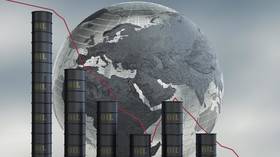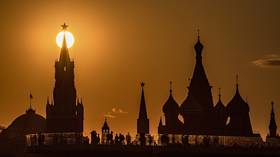Time for record global oil demand may have already passed, Russia says

Days of peak oil consumption might be over for the global economy and the trend may impact Russia’s budget revenues, the country’s Deputy Finance Minister Vladimir Kolychev has warned.
“The peak of consumption may have already passed,” Kolychev told Bloomberg in a recent interview. The official added that there is a rising longer-term risk that hydrocarbon revenues could slide below the previous forecasts.
The Finance Ministry is currently looking into several scenarios implying different levels of demand, according to Kolychev.
In an earlier report, Russia’s key financial regulator, the Central Bank of Russia, outlined four basic scenarios for Russia’s economic development. While the forecast covered the state of the national economy in the next three years, it said that in the worst-case scenario (if Covid-19 continues to wreak havoc across the globe), the price for Russia’s Urals oil brand could plunge to $25 per barrel in 2021, around 50 percent lower than its current price, and would only reach $35 a barrel in 2023.
Earlier this month, Russian President Vladimir Putin said that global demand for oil will grow by just one percent over the next five years, before it starts to weaken by 0.1 percent per year.
The Russian economy is slowly reducing its dependence on oil revenues, the president previously stressed. Oil prices no longer have “critical” influence on the national budget, Putin said in September, promising that the hydrocarbon revenues will account for around a third of the budget next year.
The pandemic hit the energy market hard in the first months of 2020, as border closures and lockdowns brought global travel and production to almost a complete halt. The commodity hit historic lows earlier this year, when one American oil futures contract plunged into negative territory and Brent trading at around $20 per barrel. Crude prices have rebounded since then thanks to a global effort to tap production, mainly due to the caps introduced by the members of the Organization of the Petroleum Exporting Countries (OPEC) and allied oil exporters led by Russia.
For more stories on economy & finance visit RT's business section













